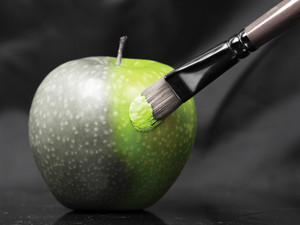 154 pounds of chicken intestines soaked in formalin, a prohibited food additive, seized in Indonesia;
154 pounds of chicken intestines soaked in formalin, a prohibited food additive, seized in Indonesia;- Italian olives painted with copper sulfate solutions to make them look greener;
- sugar that was cut with fertilizer in Sudan;
- customs agents and police officers in Hungary, Italy, Lithuania and Romania have discovered counterfeit chocolates, sweets and non-alcoholic sparkling wine that were headed to West Africa;
- South Korean police arrested a man who was smuggling dietary supplements that contained harmful ingredients but were advertised online as natural products;
- in Australia, a shipment of peanuts was repackaged and relabeled as pine nuts, posing a potentially deadly threat to people with serious groundnut allergies;
- police in Bolivia raided a warehouse and seized thousands of cans of sardines and the fake labels of a famous Peruvian brand that would have been affixed to them;
- police in eastern China raided two workshops that were producing fake jellyfish, which contained high levels of aluminum and chemicals (jellyfish is popular in parts of China, where it is sliced and served as part of a salad); and,
- illicit alcohol concocted in Greece, Britain or Burundi.
Criminals make millions of dollars a year peddling such products, and worse, to unwitting or reckless buyers, according to the international police agencies Interpol and Europol. Recent joint operations have netted about 11,000 tons of counterfeit and hazardous food and 264,000 gallons of bogus beverages, the agencies’ largest hauls to date.
“Fake and dangerous food and drink threaten the health and safety of people around the world, who are often unsuspectingly buying these potentially dangerous goods,” said Michael Ellis, who runs Interpol’s unit on trafficking in illicit goods and anti-counterfeiting measures.

